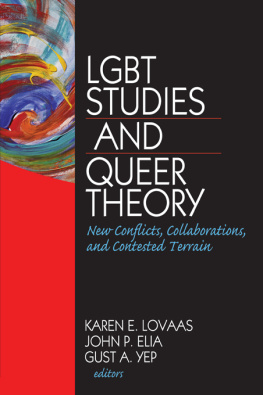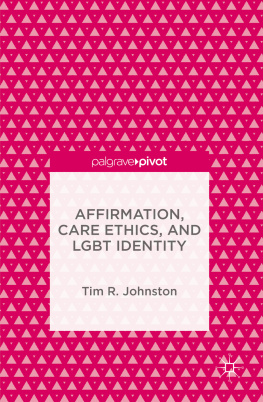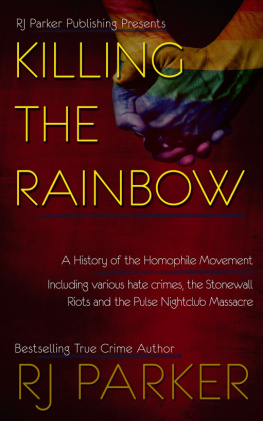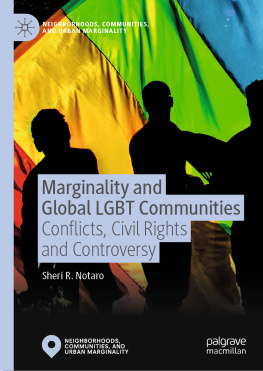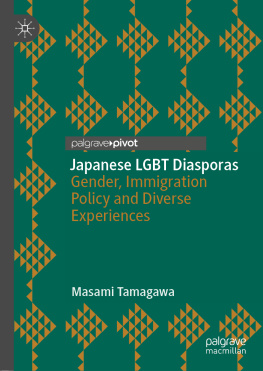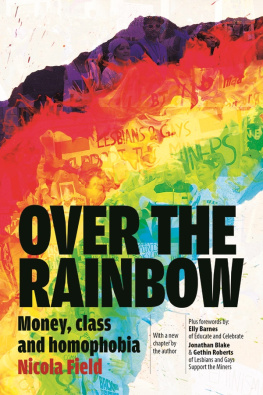Kenyan, Christian, Queer

AFRICANA RELIGIONS
Edited by
Sylvester A. Johnson, Virginia Tech
Edward E. Curtis IV, Indiana UniversityPurdue University, Indianapolis
ADVISORY BOARD:
Afe Adogame, Princeton Theological Seminary
Sylviane Diouf, Historian of the African Diaspora
Paul C. Johnson, University of Michigan
Elizabeth Prez, University of California, Santa Barbara
Elisha P. Renne, University of Michigan
Judith Weisenfeld, Princeton University
Adopting a global vision for the study of Black religions, the Africana Religions book series explores the rich diversity of religious history and life among African and African-descended people. It publishes research on African-derived religions of Orisha devotion, Christianity, Islam, and other religious traditions that are part of the Africana world. The series emphasizes the translocal nature of Africana religions across national, regional, and hemispheric boundaries.
Kenyan, Christian, Queer
Religion, LGBT Activism, and Arts of Resistance in Africa
Adriaan van Klinken
The Pennsylvania State University Press
University Park, Pennsylvania
Library of Congress Cataloging-in-Publication Data
Names: Van Klinken, A. S., author.
Title: Kenyan, Christian, queer : religion, LGBT activism, and arts of resistance in Africa / Adriaan van Klinken.
Other titles: Africana religions.
Description: University Park, Pennsylvania : The Pennsylvania State University Press, [2019] | Series: Africana religions
Summary: Examines the role of religion in LGBT activism in Kenya. Offers case studies of creative forms of queer visibility through which Kenyan LGBT individuals organize and present themselves in the public domain while critically engaging and appropriating Christian beliefs, symbols, and practicesProvided by publisher.
Identifiers: LCCN 2019015040 | ISBN 9780271083803 (cloth : alk. paper)
Subjects: LCSH: Sexual minoritiesKenyaReligious aspectsChristianity. | HomosexualityKenyaReligious aspectsChristianity. | HomophobiaKenya. | Homosexuality and the artsKenya.
Classification: LCC HQ73.3.K4 V36 2019 | DDC 306.76dc23
LC record available at https://lccn.loc.gov/2019015040
Copyright 2019 Adriaan van Klinken
All rights reserved
Printed in the United States of America
Published by The Pennsylvania State University Press,
University Park, PA 168021003
The Pennsylvania State University Press is a member of the Association of University Presses.
It is the policy of The Pennsylvania State University Press to use acid-free paper. Publications on uncoated stock satisfy the minimum requirements of American National Standard for Information SciencesPermanence of Paper for Printed Library Material, ANSI Z39.481992.
Struggle makes history. Struggle makes us. In struggle is our history, our language and our being. That struggle begins wherever we are; in whatever we do: then we become part of those millions... dreaming to change the world.
Ngg wa Thiong'o, 1986
Struggle as a praxis of liberation has always drawn part of its imaginary resources from Christianity.
Achille Mbembe, 2017
Suffering grows a spirituality of persistence
aided by faith in God who enables them to make
a way where there is no way...
Suffering sprouts a spirituality of resistance,
refusing to be blamed for the hurts one endures;
refusing to be shamed by the violence on ones self;
telling when the telling itself is taboo,
speaking it out is half of the resistance, for,
it reveals that one is alive to ones full humanity.
Mercy Oduyoye, 2001
Contents
The idea for this book was born during my immediate postdoctoral research, when I was investigating the role of religion in the politics of homosexuality in Africa, specifically in Zambia. I wrote and published several papers, attempting to make sense of religious discourses and politics opposing lesbian, gay, bisexual, and transgender (lgbt) people and campaigning against the recognition of their human rights. I did consider writing a book about this, and without doubt I could have collected enough material. Yet I asked myself: Do I really want to spend several years of my life writing about what, in the end, is religiously inspired social and political homophobia? Do I want to make a serious effort to render such often unintelligible discourse in an intelligible and critical way? What does it do to mepersonally, emotionally, and intellectuallyto engage in such a long-term project concerned with something so negative? I ended up co-editing two book volumes on religion and the politics of homosexuality, but decided that my own major project, what would become this monograph, would approach the subject from a different, more positive and constructive angleand also from an angle that stayed closer to myself as a gay person who has been exposed to more than enough religiously inspired negative messages about homosexuality and who does not want to voluntarily encounter more.
I developed an interest in the ways in which African lgbt communities organize and empower themselves in a context of religious, social, and political homo-, bi-, and transphobia, and I wanted to foreground emerging lgbt political perspectives and activist narratives on the continent. In particular, I wanted to examine how religion is not only a source of homophobia in Africa but also a source of lgbt activism and queer politics. It turned out that Zambia was not a very fruitful place in which to explore this new direction, and for several reasons I decided to shift the focus of my new line of inquiry to Kenya. This proved to be a stimulating move: researching and writing this book has been an incredibly enriching experience, both personally and intellectually.
Since my first exploratory research trip to Kenya in JulyAugust 2015, I have had the privilege and pleasure of meeting and befriending many lgbt activists and community members. My simple wish for this book is to share their stories as a counternarrative to the well-known narrative of African homophobia.
The process of researching and writing this book has been a queer one, in various respects: my fieldwork practices, my methodological orientations, my intellectual, emotional, and bodily exposures have all been, in one way or another, transgressive. My second wish for this book is to give an honest account of this process.
A note on the text: in this book, the acronym lgbt (lesbian, gay, bisexual, and transgender) is not capitalized, as an indication of the unstable and unfixed nature of these categories.
This book is the result of many interactions with a wide range of peopleresearch participants, academic colleagues, and personal friendsand I gratefully acknowledge their contribution.
First and foremost, I am enormously thankful to all my research participants in Kenya who were willing to share their stories with me. I specifically mention Trust Arinda, George Barasa, John Karari, Erick Keizi, David Ochar, Emmanuel Odhiambo, and Brian Raymond, who in the process of fieldwork have become friends. I acknowledge the leaders and members of Cosmopolitan Affirming Church in Nairobi, who warmly welcomed me into their community and gave me a taste of African Christian queerness. I am also grateful to Binyavanga Wainaina for making time to meet me and discuss issues emerging from my research, first in London in December 2014 and then at his home in Nairobi in July 2015.


